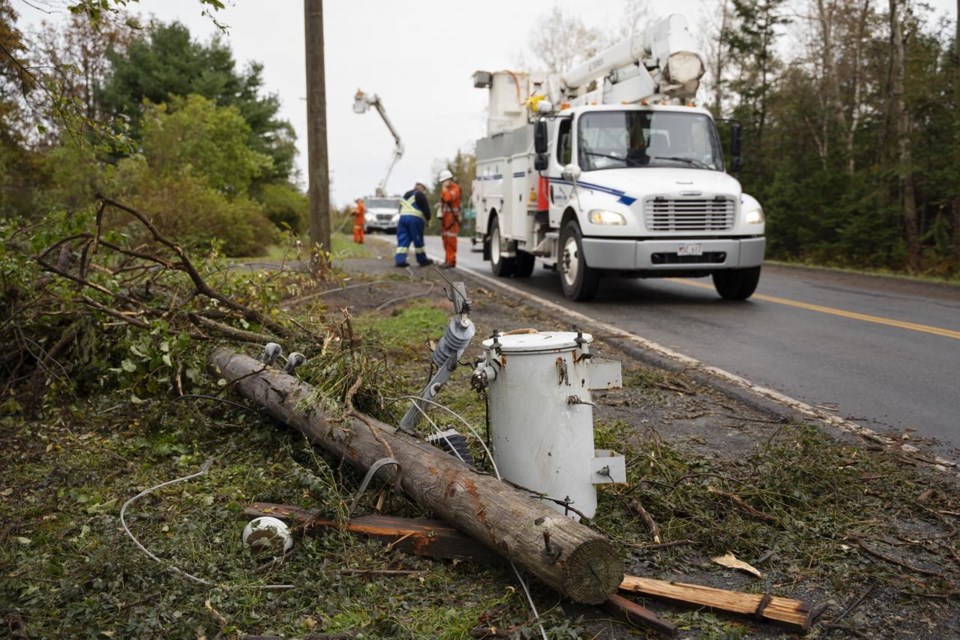HALIFAX ŌĆö Nova Scotia Power is detailing how it wants to recover costs incurred due to massive damage from post-tropical storm Fiona, arguing it needs to receive almost $25 million from ratepayers over five years.
The filing before the provincial regulator says the utility wishes to defer passing along operational costs until 2025 after the expiry of a provincially legislated rate cap.
The documents posted Friday say Nova Scotia Power would also seek interest costs of about $1.7 million over the five years for the operating costs, which mostly covered the labour involved to clean up the damage to thousands of poles.
"The five-year period would balance rate impacts and minimize intergenerational inequity," the company says in one of the submissions to the Nova Scotia Utility and Review Board.
The storm brought peak wind gusts of 160 km/h when it struck on Sept. 23, 2022, resulting in 415,000 customers losing power at the height of the storm. The utility described it as "among the most intense and damaging" in Canadian history.
The regulator has to determine if the utility had been "prudent" in incurring the storm costs, which would include analysis of whether its preparations were sufficient.
Nova Scotia Power says there are precedents for passing along storm costs, noting regulators in New Jersey, Maryland, Massachusetts, sa╣·╝╩┤½├Įicut and Grand Bahamas have allowed expenses for severe storms to be deferred and spread over several years.
In a series of exhibits filed before the Nova Scotia Utility and Review Board on Friday, the utility also warns there would be an impact on its credit rating if it can't recover the funds.
"depending on the rationale, an adverse decision in this matter could further impact the financial health of the utility and lead to a further downgrade of NS PowerŌĆÖs credit rating to below investment grade," a submission reads.
The original Oct. 31 application says if the $24.6 million in deferred Fiona costs had been expensed in 2022, this would have resulted in a regulated profit of approximately 7.3 per cent rather than the 8.65 per cent it earned.
The company, a subsidiary of Emera, also said in the application that the storm cost $114 million, with $89 million of that in capital costs due to damaged poles and other infrastructure. The remaining $24.6 million were classified as operating costs.
The documents indicate the bulk of the operating expenses are for contracts to remove trees and clear damage, overtime labour and associated costs that include meals and travel.
After post-tropical storm Lee caused widespread power outages in the province in September, the mayor of the Region of Queens Municipality criticized the utility's expenditures on tree trimming and other measures aimed at reducing outages, arguing the pace of spending on storm preparation has been too slow.
The utility has said it is increasing its investment in vegetation management to address risks from trees falling on lines.┬Ā
In the years before Fiona, the company was investing between $20 to $25 million each year on vegetation management.┬Ā
This year, the utility was projecting investment of approximately $7 million more for a total of $32 million. It says it will continue to increase these efforts year over year, nearly doubling investments over the next five years to a total of $45 million.┬Ā
This report by The Canadian Press was first published Jan. 13, 2024.
Michael Tutton, The Canadian Press



